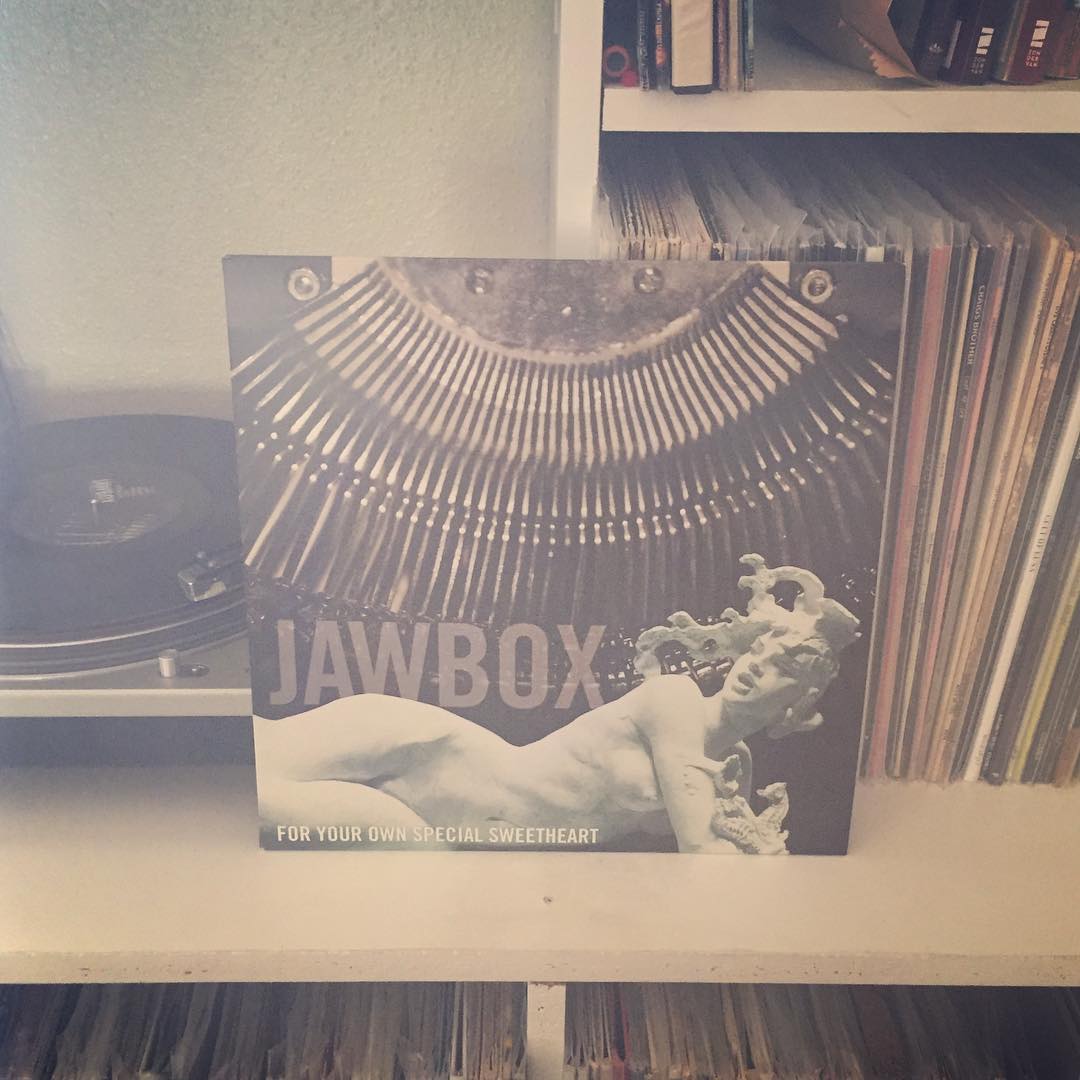 It was tough out here for a punk kid in the early 2000s looking for new music. Internet speeds to support streaming would take years to develop. We had Napster, but we it took hours to download a single song.
It was tough out here for a punk kid in the early 2000s looking for new music. Internet speeds to support streaming would take years to develop. We had Napster, but we it took hours to download a single song.
My go-to method was to read articles about bands I already liked and pay attention to their influences. And as I pored over articles, three names kept coming up: Sunny Day Real Estate, Fugazi, and Jawbox.
SDRE and Fugazi became instant obsessions. And when I started collecting more seriously, they were among the first discographies I looked for. But somehow, this is the first Jawbox album I’ve added to my collection (barring a CD copy of Novelty I bought on the cheap, and a CD of this album I found at Goodwill).
I can’t tell you why it took me so long to buy this record, but it doesn’t deserve it.
Like Fugazi, Jawbox was a fixture of the early 90s DC hardcore scene. They were lauded members of the Dischord roster.
But what set Jawbox aside from the rest of their hardcore brethren was their feelings toward major labels. While Fugazi was turning away label deals hand over fist, Jawbox gladly accepted an offer from Atlantic.
Calls of “Sell out!” rang from every corner of the scene. Sweetheart was expected to be a toothless pop record.
But the results couldn’t be further from the truth.
While this record is certainly sleeker than its predecessors, that has much more to do with the group becoming better players and songwriters. The production leaves all of the jagged edges—Kim Coletta’s bass is still raw with overdrive. The guitars still squelch with feedback. J. Robbins vocals vacillate between punk shouts, a gritty singing voice, and spoken word.
Which isn’t to say it isn’t without its pop sensibilities. “Savory” has all the drama of a rock anthem buried beneath its jagged chords. “Motorist” puts a major key clean-vocal melody over a plodding, overdriven bass riff. The chorus of “Reel” is one of the most beautiful moments to come out of the early 90s punk scene, beset on all sides by dissonant verses.
In fact, were it not for the “Atlantic” stamp, I’m not sure there’s anything else here that would tip a listener off to this being a major label debut. Fugazi themselves put out more “commercial” sounding records. Instead, this is a ripping, blistering work of post-hardcore that is just as punk as anything else.